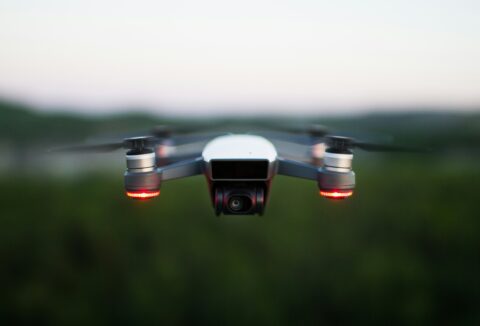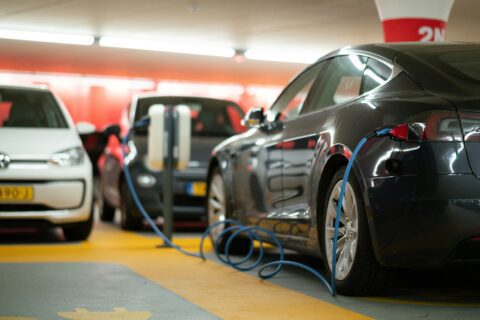Introduction to the Evolution of Transportation
Buckle up, because the future of transportation is here to take you on a wild ride! From electric vehicles to flying taxis and beyond, cutting-edge technologies are reshaping how we move from point A to point B. Join us as we explore the revolutionary advancements that are propelling us into a new era of transportation like never before.
The Rise of Electric Vehicles
With the growing concern over environmental issues, the rise of electric vehicles has captured the attention of both consumers and industry experts alike. These sleek and eco-friendly cars are not just a trend but a significant step towards reducing carbon emissions and creating a more sustainable future.
Electric vehicles offer a cleaner alternative to traditional combustion engine cars, contributing to improved air quality in urban areas. With advancements in battery technology, EVs now have longer ranges and faster charging times, making them more practical for everyday use.
Major automakers around the world are investing heavily in electric vehicle development, with exciting models hitting the market every year. The shift towards electrification is not only about going green but also about embracing cutting-edge technology that enhances driving performance and efficiency.
As infrastructure continues to improve with more charging stations being installed globally, range anxiety becomes less of a concern for potential EV buyers. The convenience of home charging further adds to the appeal of owning an electric vehicle.
The rise of electric vehicles signals a positive change in our transportation landscape, paving the way for a greener and more sustainable future ahead.
Autonomous Vehicles: A Game-Changer in Transportation
Autonomous vehicles, once a vision of the future, are now becoming a reality in today’s transportation landscape. These self-driving cars have the potential to revolutionize how we move from point A to point B. Imagine sitting back and relaxing during your daily commute while your vehicle navigates through traffic with precision and efficiency.
The development of autonomous technology is not just about convenience; it also holds promises for increased road safety and reduced accidents caused by human error. With advanced sensors and artificial intelligence, these vehicles can react faster than any human driver ever could.
Despite the excitement surrounding autonomous vehicles, there are still challenges to overcome before they become mainstream. Issues like regulatory frameworks, cybersecurity concerns, and public acceptance all play a role in shaping the future of self-driving cars.
As technology continues to evolve rapidly, it’s clear that autonomous vehicles will be a game-changer in transportation. The day when our roads are filled with self-driving cars may be closer than we think.
Hyperloop Technology: Revolutionizing High-Speed Travel
Imagine traveling from one city to another in a matter of minutes, reaching speeds close to 700 mph. That’s the promise of Hyperloop technology, a revolutionary concept that could change the way we think about transportation.
Hyperloop pods travel through low-pressure tubes using magnetic levitation and propulsion systems, offering a smooth and efficient mode of transport. By eliminating air resistance and friction, Hyperloop has the potential to be faster than traditional trains or even airplanes.
The idea was first proposed by Elon Musk in 2013, sparking interest from innovators worldwide. Companies like Virgin Hyperloop are now actively developing this technology, with successful test runs already conducted.
With the ability to connect cities like never before and reduce travel times significantly, Hyperloop technology holds immense promise for the future of high-speed travel. It may redefine our understanding of distance and time as we know it.
Flying Taxis and Personal Air Mobility
Imagine a world where getting stuck in traffic is a thing of the past. That’s the promise that flying taxis and personal air mobility bring to the table. These futuristic modes of transportation are not just concepts anymore; they are becoming a reality sooner than we think.
With companies like Uber, Volocopter, and Lilium leading the way, urban air mobility is no longer confined to science fiction movies. The idea of hopping into an electric vertical takeoff and landing aircraft for your daily commute may soon be within reach.
Flying taxis offer the potential to bypass congested roads, reduce travel time significantly, and provide a more sustainable option for short-distance trips. While there are still regulatory hurdles to overcome and infrastructure challenges to address, the prospect of soaring above city skylines in autonomous air vehicles is undoubtedly thrilling.
As technology continues to advance rapidly, we can expect flying taxis and personal air mobility solutions to play an increasingly significant role in shaping the future of transportation.
Drones and Delivery Services
Drones are not just for capturing stunning aerial shots or recreational flying anymore; they are transforming the way goods are delivered. Imagine receiving your online orders within hours, thanks to drones zipping through the sky.
With advancements in drone technology, delivery services can reach remote areas efficiently and reduce carbon emissions from traditional delivery trucks. These unmanned aerial vehicles offer a faster and more environmentally friendly option for delivering packages.
Companies like Amazon and UPS have already started testing drone delivery services, showcasing the potential of this innovative technology. From medical supplies to food deliveries, drones have the capability to revolutionize how we receive essential items promptly.
Although there are regulatory challenges and concerns regarding airspace safety and privacy issues, ongoing developments continue to address these obstacles. The future of delivery services is taking flight with drones leading the way towards efficient and sustainable transportation solutions.
Potential Challenges and Concerns for the Future of Transportation
As we look ahead to the future of transportation, there are undoubtedly some challenges and concerns that come with embracing cutting-edge technologies. One major issue revolves around the infrastructure needed to support these advancements. Will our roads, bridges, and transportation systems be able to accommodate electric vehicles, autonomous cars, hyperloop tracks, and flying taxis?
Another concern is related to data privacy and cybersecurity. With autonomous vehicles relying heavily on sensors and connectivity, how can we ensure that personal information remains secure from potential cyber threats? Additionally, questions about the regulatory framework for these new modes of transportation arise. How will laws be adapted to address issues like liability in accidents involving autonomous vehicles or airspace regulations for flying taxis?
Moreover, there are environmental considerations to ponder as well. While electric vehicles offer a cleaner alternative to traditional fossil fuel-powered cars, what impact will increased traffic congestion from new forms of transport have on air quality and emissions levels? These are just a few of the complex challenges that need careful consideration as we march towards a more technologically advanced future in transportation.
Conclusion: Embracing the Advancements in Transportation Technology
As we look ahead to the future of transportation, it is clear that exciting advancements are on the horizon. From electric vehicles and autonomous cars to hyperloop technology and flying taxis, the possibilities for revolutionizing how we move from place to place are endless. While there may be challenges and concerns along the way, embracing these cutting-edge technologies will undoubtedly shape a more efficient, sustainable, and convenient transportation landscape for generations to come. So let’s buckle up and embrace this journey into the future of transportation together!







